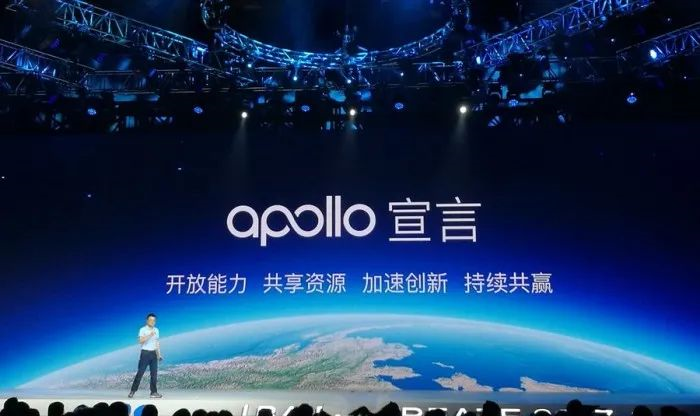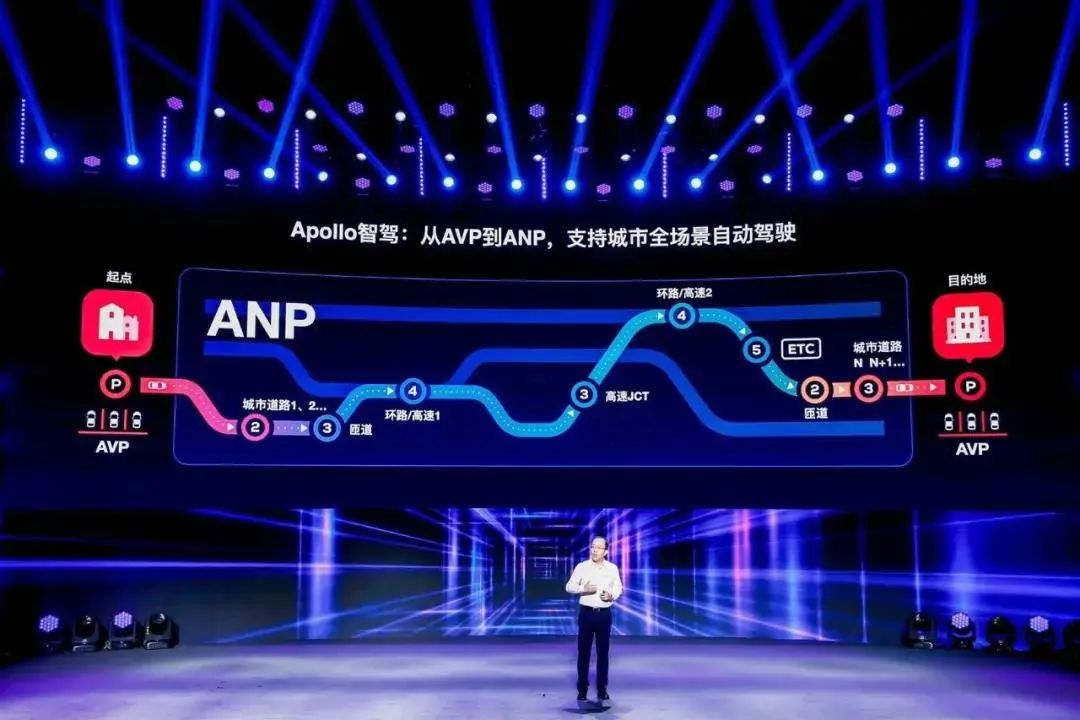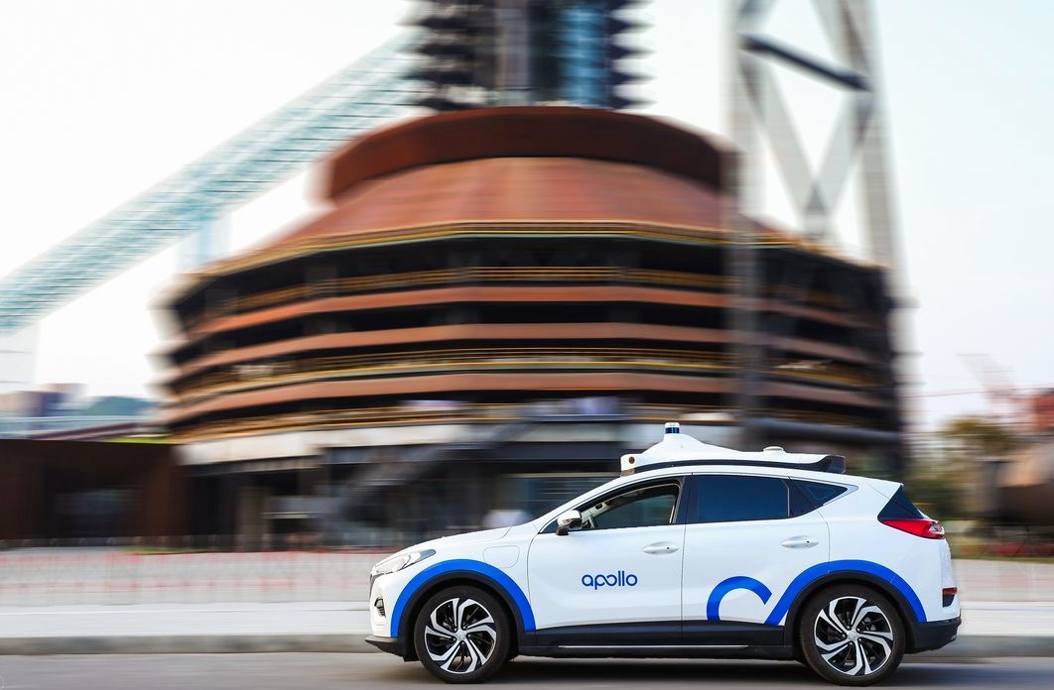Author: Yungo
On the evening of May 18, Baidu released its unaudited financial report for the first quarter. The report shows that Baidu achieved revenue of 28.1 billion yuan in Q1, a 25% year-on-year growth and the highest growth rate in two years.
Subsequently, Baidu Chairman and CEO Robin Li issued a letter to all employees: “In terms of intelligent driving and other growth businesses, autonomous driving is about to reach a turning point. Apollo has developed three business models: One is to provide Apollo autonomous driving technology solutions for host manufacturers; the second is Baidu’s self-made cars that fully integrate Baidu’s autonomous driving innovations and timely bring the most advanced technology to the market; and the third is to share unmanned vehicles.”
It can be seen that autonomous driving business appears to have become Baidu’s new growth point.

In 2013, Baidu started the autonomous driving project. Four years later, Baidu officially launched the Apollo plan, opening up the autonomous driving platform. By 2020, Baidu had squeezed into the top tier of the Navigant Research Autonomous Driving Competitiveness List and successively launched shared unmanned vehicles in Changsha, Cangzhou, and Beijing.
Against this background, why did Baidu choose to release the three business models of Apollo? What are the three business models pointing to?
Autonomous driving technology solutions, pointing to Huawei?
If we talk about which company has the best autonomous driving solution, we cannot help but compare Baidu with Huawei.
Technology competition: Baidu ANP pure visual technology solution vs. Huawei Lidar

In December 2020, Baidu launched the Apollo Lite autonomous driving solution based on pure visual L4 technology and developed the Navigation Pilot (ANP) assisted driving system based on this solution.
In terms of relevant cooperation, Baidu has signed strategic cooperation agreements with many automakers, but there are not many models that have been officially launched. Among them, the most noteworthy is the partnership between Baidu and WM Motor to launch the W6.
It is reported that the WM W6 is equipped with the Baidu AVP autonomous parking solution. The fully equipped environmental perception hardware it carries includes 2 high-definition cameras, 4 surround cameras, 12 ultrasonic sensors, and 5 millimeter-wave radars.It is worth mentioning that the uploaded sensors are not only used in Baidu’s autonomous parking solution, but also in other auxiliary functions for the W6 model. Through the Baidu AVP solution, Home-AVP can be achieved, which is a memory-based parking system (users can call and return the car with one click through their phone outside the car, thanks to machine learning).
Despite its cooperation with WM Motor on mass-produced models, Baidu’s intelligent auxiliary features only include autonomous parking, which is still far from Baidu’s desired full-stack autonomous driving solution.
Compared with Baidu, Huawei regards the use of lidar as the breakthrough point for autonomous driving solutions.
In December 2020, Huawei released vehicle-grade high-performance lidar products and solutions targeted towards the industry for the first time. With the 96-line mid-to-long range lidar product, the vehicle can achieve both city pedestrian and vehicle detection coverage as well as high-speed vehicle detection ability, which is more suitable for driving scenarios in complex Chinese roads.
Huawei’s choice of partners includes BAIC, Changan, and GAC, among others, to jointly create sub-brands.
During the 2021 Shanghai Auto Show, the Alpha S Huawei HI version jointly released by BAIC’s ArcFox and Huawei became a sensation. The Huawei HI version comes with three 96-line vehicle-grade lidars, six millimeter-wave radars, twelve cameras, thirteen ultrasonic radars, and a high-definition camera and lidar system that can be matched with high-precision maps, which can accurately extract lane and signal light information while continuously iterating.
The lidar solution of the Alpha S Huawei HI version is undoubtedly the high-end version of the autonomous driving solution, but its price of 400,000 yuan remains to be seen whether it will be accepted by the market.
Some in the industry believe that the technology routes taken by Baidu and Huawei are only different technical solutions that reflect the demands of their respective customers, with no clear superiority or inferiority.
Li Zhenyu, vice president of Baidu and general manager of the Intelligent Driving Group, also stated in an interview: “If we want to achieve unmanned driving, based on the current technology level, lidar cannot be eliminated. To release a pure visual autonomous driving solution, we need to meet customer demand for a low-cost pure visual solution.”
“The ultimate customers for providing autonomous driving solutions are the automakers. The more partners one has, the greater the likelihood of winning. Among the announced partner manufacturers, Huawei seems to have a stronger appeal. In addition, Huawei has experience in providing hardware-software integrated solutions and its own hardware platform, which is more advantageous compared to other autonomous driving solution providers,” said an industry insider.
Currently, mainstream internet companies in China seem to want to ride the wave of “car-making”.If we turn back time 10 years ago, that may not have been realistic. However, in the era of “software-defined cars”, internet companies obviously have a “natural advantage”, which gives them the confidence to cross into the field of automobiles.
Baidu stated that, “Baidu has a complete chain of ecological technologies in software, which can better leverage its technological advantages and software advantages”. Lei Jun believes that Xiaomi has the most comprehensive experience in software and hardware integration, a large amount of key technology accumulation, the largest mature intelligent ecosystem in the industry, and sufficient cash reserves.
On January 11, this year, Baidu announced a joint venture with Geely to establish an electric car company. On February18, Baidu’s Chairman and CEO, Robin Li, revealed that the cooperation is progressing normally, and the brand name and CEO have been selected. And, on March 2, Jiudu Auto officially emerged.
Outside the industry, the capital market is also more concerned about Baidu’s entry into the industry. Since Baidu’s publicly announced its car-making plan, its market value has risen from the previous $74.9 billion to $114.9 billion on February 19, a net increase of $40 billion.
Following in the footsteps of Baidu, on March 30, Xiaomi Group released an announcement, announcing the formal establishment of Xiaomi’s intelligent automobile business. Xiaomi founder Lei Jun will also serve as the CEO of the intelligent electric vehicle business, with an initial investment of RMB 10 billion, and an expected investment of $10 billion in the next 10 years.
In the industry’s view, the fundamental reason why both internet companies enter the field of car-making is the weakness of their main business.
As a search giant, Baidu was once a pioneer in internet technology companies. However, with the continuous shrinking of traditional search business, “search” has become a simple function attached to other products. According to this year’s first-quarter financial report, while Baidu achieved its best growth rate in two years, this was mainly due to the revenue from investing in Kuaishou. In other words, Baidu urgently needs to find new areas to maintain its leading position as an internet head enterprise.
Xiaomi is the same. Public data shows that the shipments of smartphones in the Chinese market in 2020 was 330 million, a year-on-year decrease of 11%. Facing the increasing pressure in the smartphone market, Xiaomi needs new business growth points, and car-making, which is currently popular, is the best choice.
And, in fact, car-making is indeed a tool to boost stock prices and enhance investor confidence.
But car-making is not easy. Whether the leader is an internet giant or a new force, continuous investment, product research and development, brand building, and after-sales service are needed, which will bring greater pressure to newly-entering companies.
Shared autonomous vehicle, aiming for Didi?In the field of shared autonomous vehicles, Baidu’s overall performance is impressive, and it has already attracted attention from Changsha, Cangzhou, Guangzhou, Baoding, Beijing and other places.
On April 29th, Baidu Apollo held the “Apollo GO” technology open day in Beijing, announcing the launch of its autonomous driving “shared autonomous vehicle” travel service in Beijing. However, this service is currently not available throughout Beijing, but only in Shougang Industrial Park, where users need to book online through the Apollo Go client.
Compared to Baidu’s “blossoming in multiple cities,” Didi is currently mainly offering shared autonomous vehicle travel services in Shanghai. In terms of the capital market, Didi’s autonomous driving company received more than $800 million in financing within its first year of establishment, which is just as remarkable as Baidu’s.
It is worth mentioning that the connection between Didi and Baidu goes beyond just the business sector.

Zhang Bo, the current CTO of Didi and CEO of Didi’s autonomous driving company, joined Baidu in 2008. In 2012, Zhang left Baidu and joined Didi. Over the next eight years, Didi gradually became the largest online ride-hailing platform in China. It’s hard to say that Zhang’s contribution did not contribute to Didi’s success.
In the industry’s view, although Didi and Baidu have become competitors in the field of shared autonomous vehicles, it is not an easy task for either of them to succeed.
In terms of current technology, large-scale commercial operations cannot be achieved in a short period of time, and can only be demonstrated in a closed environment. Moreover, long-term technology accumulation is a continuous process of burning money, which is also a reason why Baidu turned to assisted driving solutions and intelligent transportation.
As for Didi, autonomous driving is its main pathway to achieving a market value of tens of billions of dollars. For Baidu, autonomous driving is its second business growth area, and it seems that the two are destined to be compared in the field of shared autonomous vehicles.
Compared to other companies, Baidu started its layout in the autonomous driving field earlier, and is thus known in the industry as the “Whampoa Military Academy” of the Chinese autonomous driving industry. However, whether Baidu can achieve what kind of success in the field of autonomous driving in the future still remains to be validated over time.
This article is a translation by ChatGPT of a Chinese report from 42HOW. If you have any questions about it, please email bd@42how.com.